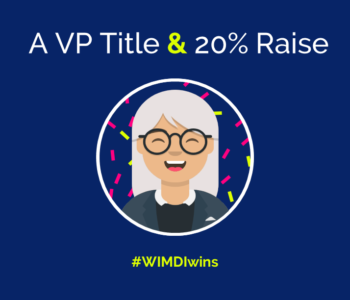 Career
Career
Demystifying Working with Leadership & Executive Coaches
- by Holly Burton
Ok, so we’ve all heard of executive coaching – but what the heck is this mysterious thing that HBR keeps telling us senior leaders use to improve their performance?
If you have a sneaky feeling coaching could help your career but have no idea what it actually is, you’re not alone. Coaching is at once both completely common and shrouded in secrecy. Over 70% of organizations offer executive coaching, but finding clear and comprehensive information about it online is challenging.
This guide will lay out everything you need to know about working with an executive or leadership coach – who should use coaching, what it’s useful for, how much it costs, how to tell if a particular coach you want to hire is worth their salt, and how to get your company to pay for it!
- What The Heck Is Coaching?
- Who Is Coaching For?
- What Can Coaching Help Me With?
- How Do I Know If I’m “Ready” for Coaching?
- What’s the Difference Between Executive, Leadership, Career, Business, and Life Coaching?
- What’s The Difference Between Internal vs External Coaches?
- What’s The Difference Between Coaching, Training, Therapy, and Mentoring?
- What Does a Typical Coaching Engagement Look Like?
- What Happens in a Coaching Session?
- How Much Time Does Coaching Take?
- What Kinds of Challenges Should I Bring to My Coach?
- What Kinds of Challenges Are NOT Suitable for Coaching?
- How Much Does Coaching Cost?
- Do Companies Pay for Coaching? Or Do I?
- How Common is Coaching?
- How Can I Tell if a Coach is Great at Their Job?
- How Can I Tell if a Coach is Terrible at Their Job?
- How Can I Tell if a Coach is a Good Fit for Me?
- How Do I Go About Hiring a Coach?
- How Do I Get My Company to Pay for a Coach if I Find One I Like?
- Uh, Holly, What if I Want to Work With You?
What The Heck Is Coaching?
At its most basic, coaching is a type of one-on-one development that helps you build your skills and work towards goals. It’s most often deployed in workplace and career contexts to help you develop your leadership skills, ready yourself for more senior positions, and climb the ladder.
You’ll work with your coach to set goals, develop your skill set, increase your capacity for high-level work, and improve your self-exploration and self-knowledge. Your coach will use a variety of techniques (asking questions, listening, clarifying, challenging, championing, holding up a mirror, etc) to help you examine and shift perspectives and find new approaches to achieving your goals.
Overall, coaching is focused on helping you lead effectively and develop more flexibility and choice in how you approach challenges.
Although none of these are perfect analogies, coaching is sometimes described as “business therapy”, “personal training, but for your career”, “a sounding board”, and “the kind of mentoring and support I wish I could get from my boss”.
Who Is Coaching For?
Coaching is for anyone that wants to improve their leadership, management, influence, decision-making, and organizational effectiveness.
Coaching happens at every level of seniority within organizations, but is most common at senior levels of management – think director, VP, and C-suite levels. In a 2013 Stanford survey, 34% of CEOs and 51% of senior executives say they work with external coaches and consultants.
Coaching is becoming an increasingly common skills development methodology in mid-career, with managers and even individual contributors getting access to individual and group coaching to help them develop their skills early on.
What Can Coaching Help Me With?
Coaching is a source of unbiased feedback that helps you develop your skills to move into executive roles and higher levels of responsibility. Your coach will help you become more effective, enhancing your skills and improving your performance.
Your coach will serve as a sounding board, helping you develop fresh perspectives and insights on sticky problems. It can be lonely at the top, and your coach will serve as a neutral third party you can talk about confidential challenges with.
Coaching will help you become a more impactful leader. Your coach will help you set goals, reflect on your current skills and behaviors, adjust, and take action that moves you forward.
Finally, coaching will help you address the big picture issues, both in the business and in your own development. Your coach will hold you accountable to your word and your vision, and they will help you action on your goals by creating permanent, recurring space in your calendar for your development, not just day-to-day firefighting.
Some of the big ticket items executive and leadership coaches work on are as follows:
Career
- Career Direction & Management
- Performance Growth
- Raising Your Profile Internally
- Getting Promotions
- Negotiation Skills
- Career Transitions
- Building a Professional Brand
Executive Skills
- Developing & Selling Your Vision
- Elevating Your Strategy
- Executive Presence
- Getting Out of the Day-to-Day Grind
- Interacting Effectively with The Board
- Managing Big Personalities
Influence Skills
- Building Credibility
- Influencing Decision Makers
- Diplomacy
- Working Your Networks
- Advanced Presentation Skills
- Creating Business Cases
Personal Effectiveness
- Improved Confidence
- Work-Life Balance
- Goal Setting
- Prioritization
- Motivation
- Accountability
Execution Skills
- Driving Results
- Organizational Effectiveness
- Making Quick & Effective Decisions
- Leading Change
Management Skills
- Becoming a Better Manager
- Delegation
- Delivering Feedback
- Having Difficult Conversations
- Effective Meetings
- Developing Your Team
- Conducting 1:1s
- Hiring
- Motivating Staff
- Performance Management
- Building a High-Performing Team
Soft Skills
- Emotional Intelligence
- Communication
- Building Strong Relationships
- Dealing with Conflict
- Empathy
- Teamwork
Self-Awareness
- Improved Self-Awareness
- Finding Skills Gaps & Blind Spots
- Identifying & Changing Limiting Beliefs
- Modifying Maladaptive Behaviour Patterns
How Do I Know If I’m “Ready” for Coaching?
There is no one way to know if you’re “ready” for coaching, but in my experience, if you’re thinking about it, you’re probably ready. Contrary to what many people think, you don’t need to have achieved a certain level of seniority or success before starting coaching.
There are any number of perfectly valid reasons for wanting to work with a coach, but some examples are:
- Your company has tapped you on the shoulder as a high-potential leader
- You have big career goals over the next several years
- You want to develop your leadership skills
- You feel stuck or like your career has been stagnating
- Your manager has told you that you need to step it up to continue in your role
- You want to develop your capacity for more senior levels of responsibility
- You’re finding it’s lonely at the top and you want to have access to a sounding board
- You just like developing your skills in a 1:1 relationship with a coach!
If you’re not sure if coaching is the right fit for you, check in with folks who know you well and see what they think – or reach out to a coach and have a conversation about your goals and whether coaching could be helpful at this stage in your development.
What’s the Difference Between Executive, Leadership, Career, Business, and Life Coaching?
Coaching goes by all kinds of names – leadership coaching, executive coaching, career coaching, business coaching, life coaching – and it can be confusing to understand what the heck all of these labels mean.
At a basic skills level, all coaching is the same: a relationship with a professional who can help you achieve your goals, increase your self-knowledge, improve your skill set, and expand your capacity. The difference comes in the focus of each style of coaching – and the background and experience of the practitioners.
All these fancy labels are basically just marketing terms that help you find someone who’s best set up to help you reach the goals you have.
Here’s a quick explainer of the common types of coaches:
Executive Coaching
Executive coaching focuses on senior and executive leaders. It helps you develop the skills, habits, and attributes you need to be successful in senior roles. The work is focused on your career and professional competencies to help you work more strategically, increase your impact, build your vision, and inspire your teams and organization.
This type of coaching is usually done over 6+ months and is explorative and question-driven, supporting you in deepening your self-understanding, decision-making, confidence, and efficacy. It is typically not very consultative or advice-driven.
Executive coaching is commonly paid for by companies as the skills of their senior leaders have an outsized effect on the bottom line.
Leadership Coaching
Leadership coaching is functionally very similar to executive coaching. There is a lot of overlap between the two, and as a result the terms are often used interchangeably.
Although you will find both executive and leadership coaches working up and down the levels of the organization, you might find that leadership coaches have a greater focus on mid-level and emerging leaders, as opposed to senior leaders.
Leadership coaching is also commonly paid for by companies, although it is less common for individual contributors and lower-level managers than it is for more senior staff.
Career Coaching
Career coaching focuses on a variety of skills related to the long-term management of your career trajectory. Common areas of focus are career strategy, career direction, and transitions (eg: between industries, retirement, etc). Career coaches work with clients on a number of concrete skills and services: resumes, job interview skills, negotiation. It’s also common for them to offer psychometric assessments aimed at uncovering your professional strengths and interests.
Career coaching is often done in short-term engagements and is often more advisory and skills-focused than leadership or executive coaching. Because of its shorter duration, career coaching often has a lower price than leadership or executive coaching.
Career coaching is not often sponsored by companies, given that it focuses on your long-term career development. However, it is common for companies to offer several sessions of career coaching as part of a layoff package.
Business Coaching
Business coaching focuses on helping entrepreneurs build and expand their businesses. This type of coaching runs the gamut from emotional- and mindset-focused work to tactical business, marketing, and sales strategy to help grow revenue and profit.
Business coaching typically happens over longer-term engagements (6+ months). Because it is tied to business expansion, this type of coaching is often priced at a premium. Business coaching is typically expensed to the business by the founder or entrepreneur receiving it.
Unless you are running your own business, this is a type of coaching you are unlikely to benefit from as it focuses very specifically on the entrepreneurial experience.
Life Coaching
Life coaching uses similar methodology to executive and leadership coaching, but is more focused on life outside of work. Its goals are often related to your life satisfaction, prioritizing improved function, emotional wellness and personal development. Most life coaching has a general focus, but there are life coaches that specialize in nearly any aspect of the human experience you can imagine: health, finance, dating and relationships, spiritual growth, etc.
Life coaching typically happens in 3, 6, or 12 month engagements. Because it is primarily sold to individuals (as opposed to businesses), it is often priced significantly lower than other types of coaching (eg: $75-150 per hour).
Since life coaching does not have a focus on business, career, or leadership, it is not as well-suited to developing your professional skill set as other coaching styles. For this reason, it is not typically a candidate for company sponsorship.
What’s The Difference Between Internal vs External Coaches?
Internal coaching is when the coaching services are provided by someone that is a full-time employee of the company. These coaches usually work for the HR department, but may come from other areas of the business.
External coaching is when the company hires a coach with no company affiliation as an external contractor.
It’s also quite common for companies to contract with an external coaching firm to coach several of their staff – sort of an internal/external hybrid model.
While all of these styles can provide excellent coaching experiences for you, there is an important nuance to consider that may affect the type of coach you prefer to work with.
One of the core benefits for coaching is that it gives you access to a neutral third party as a thought partner. This neutrality is important because it allows you to openly explore your challenges while looking at your organizational context and your internal blockers, without your coach having a stake in the outcomes.
Some folks find it difficult to achieve this level of neutrality and openness when they’re working with an internal coach or an external coach who works with many of their managers and colleagues.
You may find that working with a coach with extensive ties to your own company naturally limits the areas you’re keen to explore in the relationship. For example, it can be difficult to talk about career choices like salary negotiation or moving on to new employers, as well as issues that have HR/legal implications (eg: harassment, whistleblowing) with someone whose primary loyalty is to your employer.
What’s The Difference Between Coaching, Training, Therapy, and Mentoring?
Training
Training is skills-based, highly tactical, and usually focused on one specific competency. It’s a paid service, and often done in a classroom-style group setting over a specific period (eg: a 6-week course).
Instructors are experts in the field with some degree of professional experience teaching. Training is advice-driven, typically with very little exploration of individual challenges and emotions. It is often paid for directly by companies as part of their people development budget.
Mentoring
Mentoring is a 1:1 unpaid, long-term relationship with someone who’s “been there and done that”, usually in a similar industry or field as you.
Mentors offer their past experience and insights on your current challenges and future career progression. Meetings with mentors are often on a regular cadence (eg: monthly or quarterly) but may be on an occasional or as-needed basis. Mentoring is advice-driven, typically with moderate exploration of individual challenges, and very little exploration of emotions.
Therapy
Therapy is a paid 1:1 relationship with a trained mental health professional with expertise dealing with current and past psychological issues. It can be short-term or long-term.
Therapy often has a focus on healing and is helpful for things such as depression, anxiety, trauma, OCD, ADHD, as well as relationship issues (eg: friends, family, romantic partner), overall life satisfaction and goal setting.
Therapy is typically less focused on career and/or professional issues, although many therapists will work on these issues if they’re presented by their patients. Therapy is question-driven and features deep exploration of individual challenges and emotions. Therapists avoid consulting or giving advice.
Therapy is typically not paid for by companies, but may be partially covered by your benefits package.
Coaching
Coaching is a paid 1:1 relationship focused on leadership, career, and professional skills and challenges. It focuses on your present and future and is usually done in discrete engagements with regular meetings (eg: biweekly meetings over six months).
Like therapy, coaching is question-driven, and involves deep exploration of topics and emotions – but coaching should not delve deeply into your past or into complex mental health issues. Coaching typically brings a more action- and accountability-focused approach as compared to therapists or mentors.
Executive, Leadership, and Career Coaches also often bring specific career and leadership skill-based competencies to the table – and they will often do a small amount of training and mentoring in their sessions to help clients grow their leadership skill set and capacity.
Coaching is often paid for directly by companies as part of their people development budget, but is not usually covered by benefits packages.
What Does a Typical Coaching Engagement Look Like?
Every coaching engagement is different. Individual coaches have their own approaches, and great coaches will customize their style and work to the specific client in front of them. But let’s explore the most common styles so you have an idea of what to expect.
Duration
Most coaching engagements last between 3-12 months, depending on the goals of the client and coach, but 6 months of coaching is the length that most coaches prefer. Six months of coaching gives the client enough time to make substantial changes and progress towards their goals while being supported by their coach.
Getting Started
Every coach will have slightly different methodology, but most coaches start their engagements with some kind of goal-setting so both coach and client are clear on the desired outcomes of their work. This can be self-directed, with the client defining their own goals, or done in consultation with their manager and/or HR.
Some coaches use 360° Reviews and/or leadership or personality assessments (eg: Leadership Circle, Hogan, StrengthsFinder, DiSC, etc) as part of their process for identifying key areas for clients to develop. These will usefully be done at the start of the engagement, with an extensive debrief of the results between coach and client. Then the coach and client work together to set more detailed goals for the engagement, informed by the data provided by the assessment or 360.
Ongoing Coaching
Once goals have been set, the engagement will transition to ongoing coaching. This will involve regular 1:1 meetings with your coach, with the cadence usually determined by the coach’s preferred working style and the specific needs of the client.
Most coaches meet with clients every 1 - 4 weeks, with biweekly meetings being the most common cadence. Meetings are typically 30-minutes, 45-minutes or 1-hour. Generally speaking, the more often you’re meeting with your coach, the shorter your sessions will be (eg: 30-min weekly sessions vs. 1-hour sessions every 2 weeks).
Wrapping Up
At the end of your engagement, many coaches offer some kind of wrap-up or summary session to help look back at your learning and development over the course of the engagement and plan next steps. This is often a 1:1 session with your coach, but may involve looping in management or HR if that is part of your coaching agreement.
What Happens in a Coaching Session?
Most coaching sessions will feature the following:
A Quick Personal Check-In
Your coach will usually want to hear a brief summary of significant events happening with you since you last met. You might do this at the start of your session, but it’s also common for coaches to have you submit a check-in form ahead of the session so you can use the full meeting time to focus on the session goals.
Debriefing Homework & Your Learnings
Your coach will want to hear how your homework from the last session went. This is to help you stay accountable, but also to help you explore and cement your learnings. Many coaches do this at the start of the session, but it’s also commonly included in a pre-session “check-in form”, if your coach uses those.
Coaching Request & Coaching
At each session, your coach will ask you what you want to focus on in that meeting, a.k.a. your coaching request. See the What Kinds of Challenges Should I Bring to My Coach? section for more detail about common coaching requests.
Once your coaching request is clear, you two will explore it in depth to help you deepen your understanding of the challenge, broaden your perspective, determine your desired outcomes, develop your skills, and come up with an action plan.
Your coach will ask you lots of questions, help you explore your emotions, hold up a mirror to your blind spots, champion you, and challenge you to help you address your coaching request and build your capacity to lead effectively.
Defining Homework & Ongoing Practices
Your coach will help you define some homework or ongoing practices you can take on until your next session to help you develop your skills, deepen your self-knowledge, and take action to resolve your current challenges.
Homework is often highly practical (eg: using a new skill to facilitate a meeting differently, having a difficult conversation with a stakeholder using an approach you defined in your coaching session, reducing the number of low-value meetings and requests you say yes to, etc). It is also occasionally introspective (eg: observing your affect and emotions in a challenging interpersonal situation, journaling about your next career goals, etc).
Your homework may be a one-time practice (eg: negotiating with a supplier), or it may stretch beyond the next session (eg: practicing presenting your ideas more concisely in meetings and emails).
How Much Time Does Coaching Take?
Depending on the frequency of your sessions, plan to spend about 1-2 hours per week (including homework)
What Kinds of Challenges Should I Bring to My Coach?
In general, if it’s something you’re stuck on (or a goal you want to move forward), then it’s a great candidate for a coaching request!
There is a never-ending list of challenges that are great candidates for a conversation with your coach. But in case it’s helpful, here’s a list of some common challenges clients bring to leadership & executive coaches:
- I need to create a compelling pitch so my project gets the green light.
- How do I build a business case?
- How can I communicate effectively with senior leaders?
- What are my strengths and how can I leverage them?
- What can I do to become more influential with my peers?
- How can I create a legacy through my work?
- How can I identify mentors and sponsors to help build my career?
- What can I do to improve my team’s culture?
- How can I successfully advocate for my team’s interests?
- How can I stop holding myself back from [insert opportunity here]?
- How do I disagree without being disagreeable?
- I need to develop my confidence so I can speak up in meetings.
- How can I deal with people who steal my ideas?
- What can I do to get shy team members to contribute more?
- How can I become more decisive?
- How do I get my team to be more autonomous?
- How to have difficult conversations.
- How to hold my team to higher standards.
- Help! I was promoted into leadership with no training on people management and now I’m drowning.
- My new team is totally dysfunctional. What’s my plan of attack?
- I’ve been told I need to be more vulnerable. How do I do that?
- What is managing up and how can I get better at it?
- Building relationships when I have nothing in common with my peers.
- I feel like nothing I do is ever enough.
- How to be more directive at work.
- How to build buy-in for a change I want to make.
- I need to use my time more effectively
- Help me communicate with more clarity.
- What can I do to raise my profile internally?
- How can I be more persuasive when dealing with stakeholders?
- I’ve been told I need to build my thought leadership. How?
- How can I leverage my network and connections?
- How can I better manage my people?
- How can I make my team more productive?
- My boss says I’m too much of a perfectionist. How can I work on that?
- How do I get invited into “the rooms” where decisions get made?
- Why do I continuously do [maladaptive behaviour]?
- What can I do to have better boundaries at work?
- How can I say no to more?
- How can I stop second guessing myself?
- How can I create impact?
- Why does my team defer to me for every decision?
- How can I get my leaders to recognize my contributions?
- How can I become more assertive in conflict?
- How to give tough performance feedback.
- How can I build my credibility?
- How can I build my exposure to a more international perspective?
- I need to motivate my team, but I don’t have the budget to pay them more. Now what?
- I’m starting a new job. What should I do in the first 30-60-90 days?
- Dealing with entrenched patriarchy at work.
- Becoming more diplomatic.
- How can I start working less?
- How can I be more consultative in my decision making?
What Kinds of Challenges Are NOT Suitable for Coaching?
While coaching can help with a lot of things, it’s also important to understand what challenges coaching is poorly suited to help with.
A great coach knows that their job is to do what will best serve you, their client, and so they will refer you out to other professionals for the following types of challenges:
Physical & Mental Health Issues
While most coaches are trained, competent professionals, they are emphatically not trained medical or mental health professionals! It’s important if you need this kind of help that you connect with someone who has the training and resources to help you most effectively.
Coaches will refer you out for any physical health issues (eg: menopause, diabetes management, chronic pain, etc), and especially anything that might need a prescription.
On the mental health front, coaches will refer you out for serious and/or complex bio-psycho-social issues such as anxiety, depression, ADHD, PTSD, OCD, bipolar, BPD, dyslexia, autism, burnout, etc.
Addressing Significant Past Challenges
Coaching is primarily focused on the now and the future, not the past. While coaches may occasionally briefly explore past origins of current challenges with their clients, in-depth exploration of challenges rooted in childhood, past relationships, or traumatic incidents should be referred out to a trained, competent therapist. These professionals have additional tools to help you navigate the complex issues inherent in these past challenges.
Working with a therapist already on some of these issues but wondering if coaching could help you with work-focused issues? This is quite common. Coaches bring their own set of competencies to the table (especially on the career front!) and will often work with clients while they do this deeper exploration work with other trained professionals – as long as the client is not in a place of significant instability as a result of their other work (eg: working to resolve past serious traumas, etc).
Specific Strategic or Tactical Business Advice
As much as your coach might help you reach higher levels of performance as a leader or executive, they are not business experts. Coaches will refrain from giving advice on company strategy, tactical business planning, legal issues, company finances, etc. Reach out to experts in these fields for consulting instead!
Problems Other Experts Could Better Help With
Like with business advice, there are just some areas where an expert will give you better help than a coach. Need to learn how to ready your company financial statements? Hire an accountant! Looking for legal advice? A lawyer is the right move.
How Much Does Coaching Cost?
Coaching prices vary widely depending on a bunch of factors: the experience of the coach, the type of coaching they do, your level of seniority, your industry, what kind of company you work for, the inclusion of assessments or 360° reviews, and even your location.
For six months of coaching, you can generally expect a price somewhere between $2,500 and $30,000 . Most coaches don’t price their services on an hourly basis, but this translates to between $150 and $2,000 per hour.
The low end of that pricing scale ($2,500) would be representative of a less-experienced coach working with an individual contributor, whereas the high end ($30,0000) is more in line for an experienced coach working with a senior executive at a Fortune 500 company.
Do Companies Pay for Coaching? Or Do I?
Most coaching is paid for by companies, not individuals.
Surprised companies are willing to invest in this kind of work? Worried they might view it as a negative or undue cost if you ask for funding? Don’t get it twisted!
Yes, coaching is an investment in your leadership development, but coaching is also an investment in things that directly benefit the company, like improved productivity, more functional teams, better decision making, faster results, and improved strategy. All of these have direct ties to their bottom line, and like any other investment in the business, they think of it in terms of ROI (Return On Investment).
What is the ROI, you ask? A 2009 Study from the International Coaching Federation pegged the median ROI of executive coaching at 7x .
If you’re in a company that doesn’t make budget available for these kinds of things, or if you’d simply prefer to fund it yourself, know that self-funding your executive coaching is also common. Many coaches offer sliding scale pricing and payment plans to make this work affordable for folks who want to self-fund. You can even explore having your company partially fund your coaching and paying for the balance yourself.
How Common is Coaching?
Incredibly common. According to a 2021 study by Chief Learning Officer, 70% of organizations offer executive coaching – but an additional 22% would also offer leadership coaching if they could get budget approved. So chances are good that even if your company doesn’t currently offer coaching, they’ve thought about it and they’re interested.
Coaching is increasingly offered at all levels of seniority, but it’s most commonly used as a development tool at senior levels, with 34% of CEOs and 51% of senior executives reporting working with external coaches and consultants, according to a 2013 Stanford survey.
How Can I Tell if a Coach is Great at Their Job?
There are lots of ways to tell if a coach is great at what they do, but let’s start with the basics.
Training & Certification
You want to look for someone who completed coach training at an accredited coaching school. Accredited training programs offer at least 125 hours of classroom time plus supervised mentor coaching with an experienced coach, so coaches trained by reputable schools have a good foundation of skills to help you develop as a leader.
It’s also great if your coach is certified by the International Coaching Federation (ICF). The ICF offers certification at three different levels corresponding to various levels of experience – ACC (125 hours), PCC (500 hours), and MCC (2000+ hours). Each level has education requirements and a skills assessment to ensure consistent coaching quality.
Results
There are a whole bunch of attributes that make a coach great, but the most important one is the results they help you get! The whole point of working with a coach is to create progress towards your goals, whether that’s developing your leadership skills, progressing your career, or shifting your attitudes and beliefs.
You should feel like you’re making headway. You should get new insights. Your skills and behaviours should be transforming.
Change is almost never instantaneous, but if you’ve been working with a coach for 3+ months and nothing is different, then you have a problem. Coaching should get you results!
Coaching Skills
Most coaches you work with will be able to help you unpack your specific challenges and create action plans to address them. But amazing coaches will go a layer deeper.
Excellent coaches spend time working on the problem under the problem – the underlying patterns, mindsets, and beliefs that show up not only in this problem, but elsewhere in your life too. They’ll go deeper to address the foundational issues so you’re not just playing Whac-A-Mole with the problem of the day, you’re making big leaps forward in your development.
Great coaches will consistently hold up a mirror to help you see things that sit in your blind spots. They will share things they observe, they will challenge your default patterns, and they will notice subtleties in your language, stories, and body language that you may not have observed before. Good coaches should consistently put you at choice about your actions – whether you’ll continue your current behaviour, or do the thing that will help you grow.
Finally, really good coaches will ask deep questions that help you recontextualize the issue you’re working on. If you find yourself muttering “Wow, great question!” in the middle of a coaching session, that’s a good sign.
How Can I Tell if a Coach is Terrible at Their Job?
There are so many ways! But let’s list some of the big red flags so you know what to avoid:
No Results
If nothing in your life changes, then you’ve got a problem! Coaching is meant to be transformative, and it should move you towards your goals. If that’s not happening, then it’s worth considering whether you’re working with the right coach.
Obviously, coaches aren’t in charge of the universe, so there might be other reasons why you might not be making the progress you hoped for, but if you’re not moving forward within 3 months of starting your coaching relationship, then you should definitely discuss it with your coach and consider looking elsewhere.
Poor Confidentiality Practices
Nothing makes my skin crawl like a coach who shares confidential client details in sessions without consent– and unfortunately it’s more common than you’d think!
While most coaches are incredibly scrupulous about client confidentiality, I’ve seen too many examples of coaches getting gossipy with clients, especially if they are working with more than one person within an organization. Hearing all the hot goss about your leaders and colleagues might seem delicious, but it means that you can’t trust your coach to keep your information secret. And that means that you’ll have to hold back in your coaching sessions, which will sabotage your chances of getting the powerful growth you should be getting from your coaching sessions!
When you’re looking at hiring a coach – and especially if you’re considering working with someone who coaches other folks at your company – ask them to tell you how they handle confidentiality. And then pay attention to whether they walk their talk. Good coaches will never reveal anything you discussed in a session without your express consent, and anything less than that is a red flag.
Too Much Advice & Not Enough Introspection
Ever feel like your coach talks more than you do? Big yikes!
Other than brief moments where they teach you specific leadership skills or frameworks, your coach should spend most of their time listening, asking questions, sharing observations, and putting the spotlight on you.
If your coach spends all their time in advice mode, that means they’re not giving you enough space to learn, explore, and grow your own thinking and introspection, which is a big part of what coaching should give you!
Your Coach Always Sets The Agenda
In a good coaching relationship, you should set the agenda for your coaching work 90-100% of the time. That’s not to say you and your coach can’t co-design goals, coaching requests, or sessions, but what you work on should always be up to you at the end of the day.
A coach that doesn’t make a practice of turning control of your coaching sessions over to you is probably not going to help you maximize your development because a big part of your development is you stepping into your leadership (yes, even in the coaching sessions!).
You Feel Challenged, But in a Bad Way
Your coach should challenge you and shine a light on your default patterns and maladaptive coping strategies. So it’s normal to feel a certain degree of healthy tension. But you should always feel like your coach is on your team. You should always feel like your coach is for you – unequivocally on your side – even if they’re giving you tough love.
If you feel the tough but not the love, then it’s time to find a new coach who can partner with you more effectively and champion you while challenging you.
Going Way Beyond Their Depth in Mental Health
The last – and biggest! – red flag to watch out for is a coach who delves too far into mental health issues that they’re not trained to work with. Since coaching often deals with emotional content and mindset blocks, it’s important for your coach to have a good understanding of what falls within their safe scope of practice and what needs to be referred out to folks with more training.
No coach should ever endeavor to diagnose you with any mental health condition or developmental disorder (eg: depression, anxiety, ADHD, etc). And similarly, no coach should ever work with you on serious mental health issues such as trauma, suicidality, etc.
Any coach who wanders into these areas – or worse! makes this part of their marketing or core services – is working well outside of what they’ve been trained to do and putting your mental health at risk. Stay away!
How Can I Tell if a Coach is a Good Fit for Me?
First things first: Results! You can tell if your coach is a good fit because you consistently leave your coaching sessions with new insights. Your coach should provoke new ways of thinking and in turn, you should start to see changes in your skills and behaviours in line with your goals.
Beyond results, having a personal connection with your coach is also crucial to making progress through the coaching relationship. You should feel like your coach “gets” you and understands the challenges you’re trying to resolve and the goals you want to achieve.
While it’s not necessary, it can be really helpful to work with a coach who has worked in a similar industry or profession as you or who has similar intersectional identities – they will often understand your challenges implicitly because they have direct experience working in a similar context.
Finally, a coaching relationship that will serve you powerfully should have a strong sense of connection and ease – but it shouldn’t be easy. You should leave your coaching sessions feeling challenged, like your coach is encouraging you to stretch and grow. Coaches who are a great fit for you will be able to hold your feet to the fire while making you feel seen, supported, and cared for.
How Do I Go About Hiring a Coach?
Yay! It’s so exciting to hire a coach! Let’s talk about how to make it happen:
Find a Coach
The first step is figuring out who you should work with.
Referrals from friends and colleagues are a great place to start. If you know people who have loved the work they did with their coach, ask for an introduction. You might also consider issuing an open call for recommendations if you’re part of any professional communities (eg: Slack channels for your line of work, employee resource groups, or groups like WIMDI).
Consider asking your manager or HR about any company coaching programs, or executive or leadership coaches the company works with regularly – they might have pre-existing relationships with established coaches.
Outside of recommendations, you can also look on places like Google and LinkedIn, using keywords for your role, your industry, and the type of coaching you want to narrow down the results. As well, the ICF offers a Credentialed Coach Finder service that lets you search their member database for potential coaches.
And – of course – you can also always just shortcut all the referrals, googling, and talking to HR and get on a call with the wonderful Coach who wrote this article! I have 10 years of experience as a mining engineer and 7+ years of experience as an executive coach for women in male-dominated industries – and I run the whole WIMDI community to boot! Learn more about working with me here.
Organize a (Free) Call with Your Potential Coaches
Once you’ve identified a coach or two you’d like to explore working with, it’s time to get them on a phone call!
Most coaches offer free introductory sessions so you can ask questions and see what working with them is like. Intro sessions are usually 30 minutes long, but some coaches do 15-minute or 60-minute initial sessions. For example, at WIMDI we offer 30-minute complimentary exploration calls, which you can find here.
Hot Tip: As you evaluate your various potential coaches, make sure you get to spend some time actually being coached by them, not just scoping the work or asking questions.
As you’ve seen in this article, so much of the effectiveness of executive and leadership coaching is based on the chemistry and relationship between you and your coach. So take them for a test drive!
You’ll be able to feel for yourself whether this person will be able to understand you, challenge you, and work with you in a way that will feel both supportive and productive.
Get a Quote or Proposal
During your introductory call, your coach should discuss what kind of coaching package they feel would be a good fit for your goals, and they should discuss pricing with you. Some coaches will follow this up with a formal quote or proposal via email – something that you’ll need if you’re planning on asking your company for funding.
Make sure at this point in the process you understand the number of coaching sessions you’ll get, what support looks like outside of regular sessions, and payment schedules and methods.
Some coaches take payment upfront, but many offer payments in installments (eg: monthly, quarterly, etc), which can be especially helpful if you’re self-funding. Most coaches take payments in a variety of ways – credit card, e-transfer, or via your company’s various vendor payment methods.
How Do I Get My Company to Pay for a Coach if I Find One I Like?
Yay! I’m so excited you want to ask your company to fund your coaching!
Over the years that I’ve worked as a coach, I’ve noticed with great frustration how many women don’t even think to ask for their company to pay for coaching. Men – big surprise! – almost always ask and get coaching funded. Arg! So I’m excited that you’re bucking the trend.
Here are some tips to help you make the ask.
Ask Your Coach for Help
Before you make the ask for coaching at work, ask the coach you want to hire for support! Lots of coaches have experience with clients making this ask and know how to sell their services effectively to your higher-ups.
For example, I help clients get their coaching funded all the time. I use all my negotiation coaching skills to help my clients strategize their asks for funding – and practice making them so they sound polished and confident when they ask! So if you want help making the case to your company, book some time on my calendar and we can strategize together.
Existing Professional Development Funding
A good first place to look for funding options for your executive or leadership coaching is your personal professional development budget at work. Many companies make a certain amount of funding available each year for training, coaching, books, etc. Check to see how much budget is available and whether it would cover the coaching you want to do. This is the easiest option as you usually have broad discretion to spend this budget as you wish without lengthy approval processes.
Not sure what your company offers? You can usually find information about professional development budgets in your employment contract, internal company policy documents, benefit documentation, or occasionally through HR.
Talk to Your Boss
If you need additional funding beyond any individual yearly professional development budget your company provides, your next stop should be a discussion with your boss.
When you tell your boss you want coaching, make sure you frame the benefits in terms of things that help the company. While your first instinct might be to talk about how coaching will help you feel more supported, confident, and able to take on new challenges, those things only help the business indirectly, so they don’t make for a persuasive reason for your boss. Instead, frame the outcomes or results of the coaching in terms that the business can understand: improved productivity on your team, better change management for a major upcoming project, improved communication with the executive team that will raise your department’s profile, etc.
Need help figuring out how to explain the benefits of coaching to your boss? Reach out to your coach (or me!) for help – they should be able to help you ‘translate’ your goals into business-speak.
In addition to your rationale for asking for coaching, make sure you come into the conversation with your boss with the basic logistical details of your coaching arrangement handy: duration, number of sessions, cost, name and bio of your coach, etc. That will help make sure your boss has all the information they need to say yes.
Hot Tip: It is usually much easier to get coaching approved by your boss and paid for out of their departmental budget.
While HR often has the best intentions, it’s not uncommon for them to slow down the process considerably with additional red tape. I’ve seen clients face a 9+ month delay in starting coaching because their HR got involved, while other clients whose bosses funded their coaching directly started coaching within a matter of weeks. Yikes!
If your boss is open to funding your coaching but has a certain signing authority level that limits their spending on single invoices, explore an arrangement with your manager and coach where invoices are split up into smaller amounts that fall under the limit. This can often reduce the amount of back and forth – and significantly speed up your access to coaching! Yay!
Talk to HR
You may need to bring your request for coaching funding to HR. The playbook here is basically the same as if you were pitching coaching to your boss: come prepared with a business-focused rationale for your request, plus all the costing and logistical details of the coaching package.
Hot Tip: Since HR departments are often full of people development nerds, they can get pretty excited about coaching. So sometimes a request for one person to get coaching can turn from a simple budgetary approval exercise into a sudden enthusiastic plan to start a company-wide coaching program. Depending on the size of your company, this can be a process that takes anything between a few weeks to a few years. Ugh!
While a whole-company program is exciting, this can mean that your coaching gets delayed as they do the work of socializing their new program at the executive level and getting approval for a big chunk of budget. Yikes!
So if HR starts to get that starry-eyed maybe we could offer coaching to everyone! look in their eyes, I highly recommend you suggest they treat you as a pilot project – that way you can start getting the benefits of coaching while they explore a larger program.
Uh, Holly, What if I Want to Work With You?
Great question! If you want to work with an experienced executive coach with lived experience working in technical roles in male-dominated industries, then I’m the coach for you!
Learn about WIMDI’s leadership coaching services here and book a free 30-minute consultation here.
Looking for a Leadership Coach?
We've got you! Book a call with Holly and get the support you need to develop your leadership.






